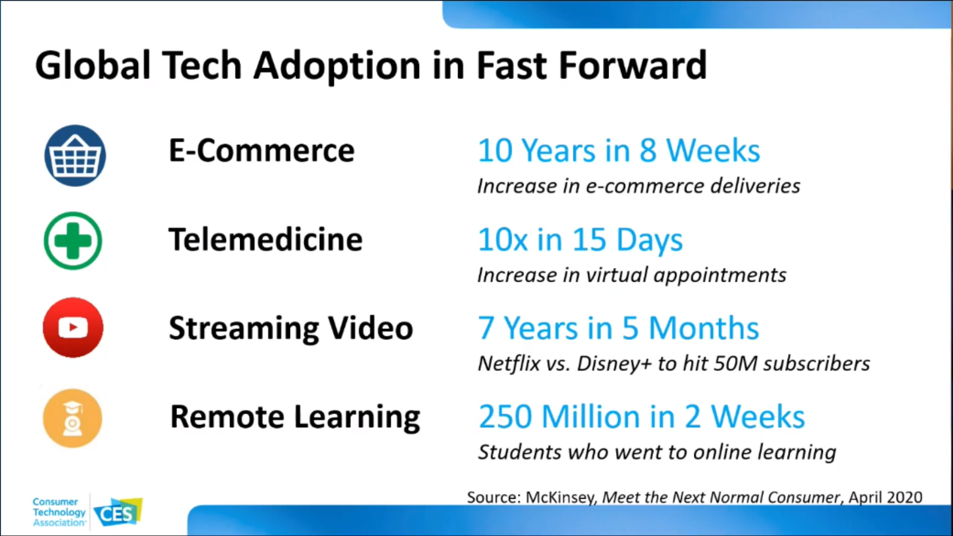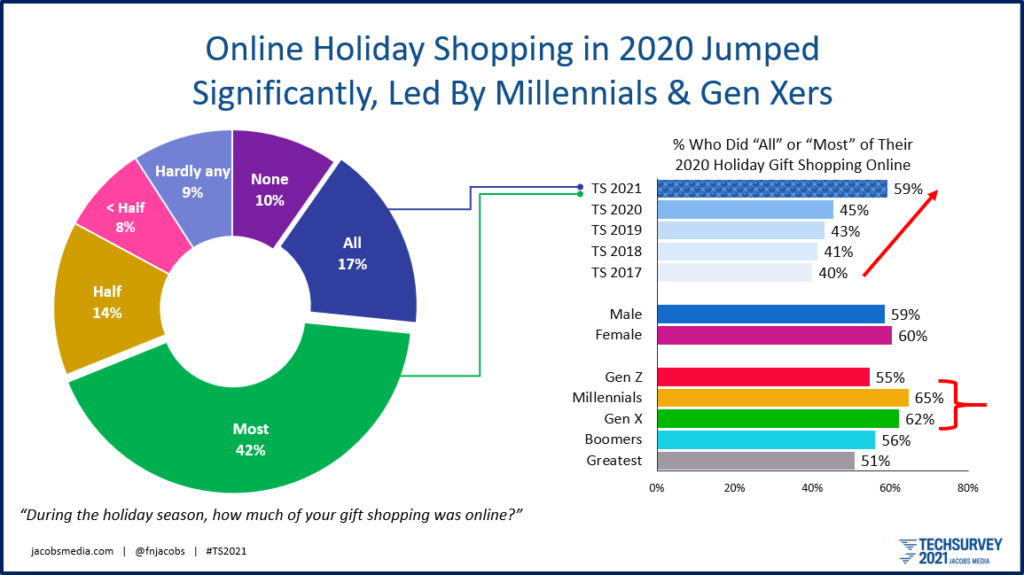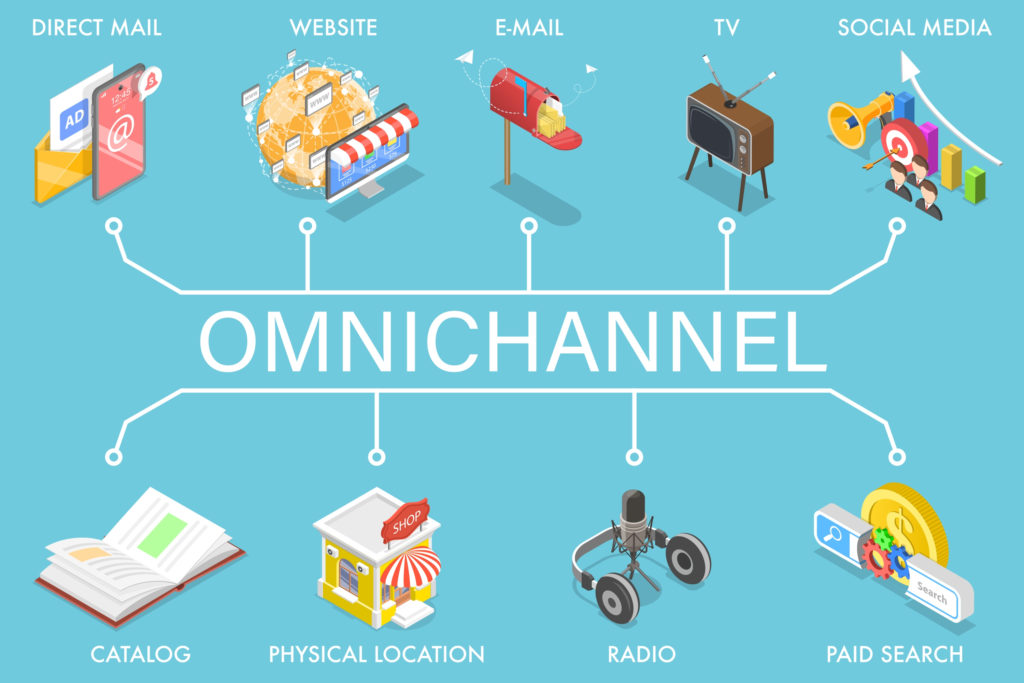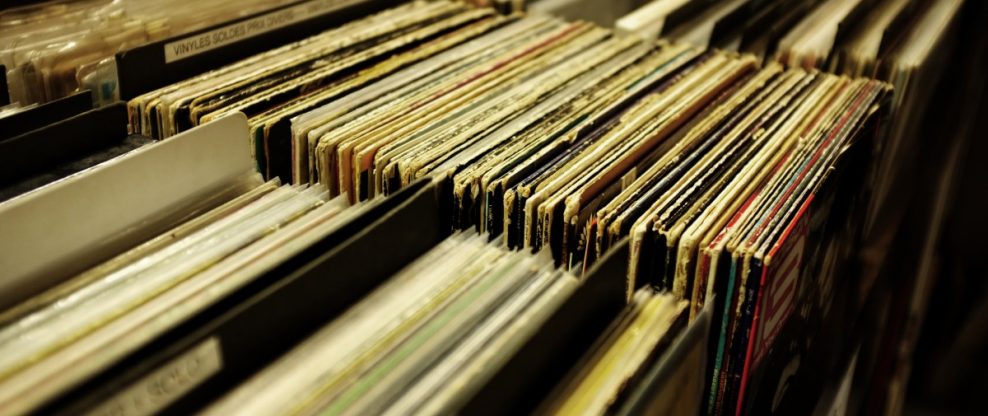(Hypebot) — The majority of major news outlets seem to be in agreement that both retail department stores and broadcast radio are all but dead to the consumer economy. Fred Jacobs outlines why that might not actually be true.
Guest post by Fred Jacobs of Jacobs Media Strategies
Just watch CNBC or pick up the Wall Street Journal on any given day. It’s conclusive:
Amazon killed retail.
After all, look at the sorry state of department stores in the U.S. – Sears, Macy’s, J.C. Penney, Nieman Marcus, Lord & Taylor, Nordstrom. They’re either in bankruptcy, they’re reeling, or they’re on the brink of extinction. And thanks to COVID and less in-store and mall traffic, hundreds and hundreds of once established stores have called it quits.
“The retail apocalypse” is an undeniable truth.
Or is it?
COVID accelerated the megatrend of online shopping, essentially pioneered and perfected by Amazon more than a couple decades ago. The Consumer Technology Association (the folks who produce CES) reported this past January how the pandemic sped up the online shopping frenzy. McKinsey did a study during COVID’s early chapters, and concluded that in just the initial 8 weeks of lockdowns, e-commerce adoption increased 10 years.

With most of America locked down, folks either figured out how to buy stuff online or go without. As the chart also shows, telemedicine, streaming video, and remote learning also experienced hyperactive growth during COVID’s early days. Americans had to master these technological steps in order to live their lives.
We have seen a similar trend in our Techsurveys as well. We conduct them in January/February each year – the perfect time to ask respondents about their recent holiday shopping habits. Note on the upper right trend section of the chart below, e-commerce had been growing pre-pandemic. But COVID accelerated the process. Last year, nearly six in ten told us all/most of their holiday shopping occurred online, a significant increase from previous years.

Many of you have asked whether we can expect continued growth during 2021’s holiday season. Clearly, the state of the pandemic this fall may dictate whether this pattern continues to remain steady – or experience even more growth. But it is safe to assume that many holiday shoppers discovered the ease of shopping on laptops, tablets, and smartphones last December. Many will not be headed to Main Street or the malls like they once did.
It’s no surprise when you see Millennials are overwhelmingly doing their gift-shopping online. It’s a whole other thing when a majority of Baby Boomers and the Greatest Generation (those born before 1946) are making more of their holiday purchases while staring at a screen.
Every ounce of logic suggests that e-commerce will continue to swamp brick-and-mortar stores, driving them into oblivion.
Except that Amazon has big plans to open up a series of department stores, thus confounding the experts yet again. By the way, it’s not their first foray into retail.
Amazon has launched 24 bookstores in the U.S. since 2015. They also have 30 “4-star” shops, and of course, there’s their purchase of Whole Foods, an iconic grocery brand. They’ve also opened Amazon Go stores as well as Amazon Fresh, a grocery store chain. All in all, that’s a lot of brick & mortar for a company famous for leaving their signature smiley boxes on your front porch.
And now a new story in The Economist – “Amazon’s department-store plans are less surprising than they appear” – is a reminder the company is still taking its founder, Jeff Bezos, seriously:
“The world wants you to be typical…Don’t let it happen.”
Thus, the company’s next move in retail shouldn’t surprise us. They’re opening up their versions of big box stores in California and Ohio. We’re talking 30,000 square foot retail giants.
Amazon has waited until retail business was already in a pretty rough place before making this next move. Walk into any department store – one that’s still open – and try to find good salespeople. Or any salesperson for that matter.
So, what’s Amazon thinking?
After bringing much of retail to its financial knees, Amazon is making heavy bets on the store traffic. Interestingly, they aren’t exactly killing it in the retail space. Amazon’s entire retail business was off 6% last year, compared to its 2018 performance. But that’s not what it’s about.
Amazon’s philosophy has a similar ring to a strategy we have talked about often in radio:
Meet the shopper where she is.
Sure, online shopping is a huge juggernaut that can’t be stopped, but there is still a retail market. Some people simply enjoy the shopping experience. It can be social. It’s something many families enjoy doing together. It’s a way to get out of the house.
And Amazon wants to dominate it all.
The financial community refers to it as an “omnichannel” strategy. And Mark Shmulik, a broker at Bernstein, wonders: “What took them so long?” He views retail as the next logical frontier for Amazon – another way for the company to increase its shopping share.
Our take on the big theme that dominated CES 2021 this year was a similar one:
Meet the customer where they are. (Or where they will be.)
And that is why we continue to encourage radio broadcasters to research its users in order to determine the optimal platforms they can use to entertain and inform their fans. It is why mobile, streams, smart speakers, and podcasts are all avenues worth pursuing. It is abundantly clear that transmitters and towers are making up a declining piece of the media pie. Thus, omnichannel.

So, if radio companies should be actively creating content and distribution in the digital space, what about tech companies like Google, Apple, Facebook, and yes, Amazon.
Their data reads just like ours. Broadcasting may be in decline, but it still constitutes a large and desirable share of media consumption. Why wouldn’t these “trillion dollar death stars” as Evan Shapiro calls them, want their piece of the action?
And that begs the question: If they’re getting into retail, it’s not much of a leap to buy radio companies.
As iHeartRadio, Townsquare, and others are proving, even a diminished broadcast portfolio can drive ears and eyeballs pretty much anywhere – to web pages, to apps, to podcasts, and of course, to car dealerships, concerts, and other destinations.
That’s why it’s not a major stretch to imagine one of these mega-tech companies trying their hand at radio.
Imagine what would happen if Amazon bought a regional broadcast group to test drive the concept, like they’ve done with book shops, and soon big box retail stores.
They’d surely learn about the efficacy of radio, its strong presence in local communities, its ability to make fan connections, and its value in selling just about anything.
And at the same time, they’d teach us valuable lessons about new and innovative ways in which to run radio companies that have eluded broadcasters for decades.
Would it shake the radio broadcasting industry to it core?
One can only hope.
Fred Jacobs: President & Founder at Jacobs MediaFred Jacobs founded Jacobs Media in 1983, and quickly became known for the creation of the Classic Rock radio format.
Jacobs Media has consistently walked the walk in the digital space, providing insights and guidance through its well-read national Techsurveys.
In 2008, jacapps was launched – a mobile apps company that has designed and built more than 1,300 apps for both the Apple and Android platforms. In 2013, the DASH Conference was created – a mashup of radio and automotive, designed to foster better understanding of the “connected car” and its impact.
Along with providing the creative and intellectual direction for the company, Fred consults many of Jacobs Media’s commercial and public radio clients, in addition to media brands looking to thrive in the rapidly changing tech environment.
Fred was inducted into the Radio Hall of Fame in 2018.





























